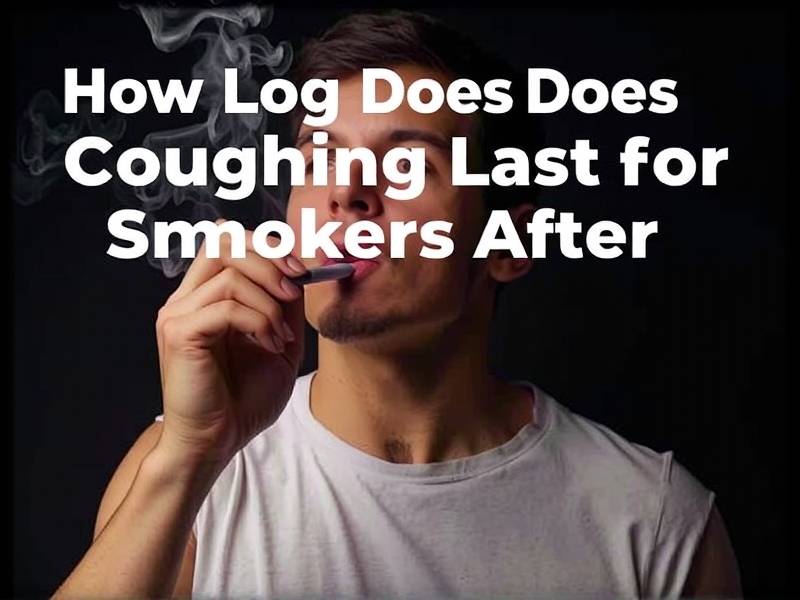How Long Does Coughing Last for Smokers After Quitting Smoking?
Understanding the Post-Quitting Cough
Quitting smoking is a significant life decision that many take to improve their health and well-being. One common challenge that smokers often face after quitting is persistent coughing. This article delves into the duration of this post-quit cough, its causes, and what you can do to manage it effectively.

What Causes the Post-Quit Cough?
The cough that many smokers experience after quitting is often due to the body's natural healing process. When you stop smoking, your respiratory system starts to clear out the accumulated tar and mucus that have built up over years of smoking. This can lead to a cough as your lungs work to expel these substances.
How Long Does the Cough Typically Last?
The duration of the post-quit cough can vary greatly from person to person. For some, it may last just a few days, while for others, it could persist for several weeks or even months. On average, most people find that their cough begins to subside within two to three weeks after quitting.
Factors Influencing Cough Duration
- Severity of Smoking: The longer and more heavily you smoked, the more severe your post-quit symptoms may be.
- Age: Younger individuals may experience a quicker recovery than older smokers.
- Overall Health: Smokers with existing respiratory conditions might find their cough persists longer.
- Environmental Factors: Exposure to irritants such as dust or smoke can exacerbate symptoms.
Managing Your Post-Quit Cough
While there's no one-size-fits-all solution for managing post-quit cough, there are several strategies that can help:
- Stay Hydrated: Drink plenty of fluids to thin mucus and make it easier to expel.
- Humidify Your Environment: Using a humidifier can add moisture to the air and help soothe your throat.
- Gargle with Salt Water: This can provide relief from sore throat caused by coughing.
- Avoid Irritants: Stay away from smoke, dust, and other potential irritants in your environment.
Seek Professional Advice If Needed
If your cough persists beyond a few months or if you experience other concerning symptoms like shortness of breath or chest pain, it's important to consult a healthcare professional. They can rule out other conditions and provide appropriate treatment if necessary.
Conclusion
Quitting smoking is a journey filled with challenges, but understanding what to expect regarding post-quit symptoms like coughing can help ease your transition into a smoke-free life. By staying hydrated, managing your environment, and seeking medical advice when needed, you can navigate this phase more comfortably and move closer to better health.

Remember, every day without smoking is a step towards improving your lung function and overall well-being. Keep motivated and focused on your goal – a life free from the harmful effects of tobacco.
